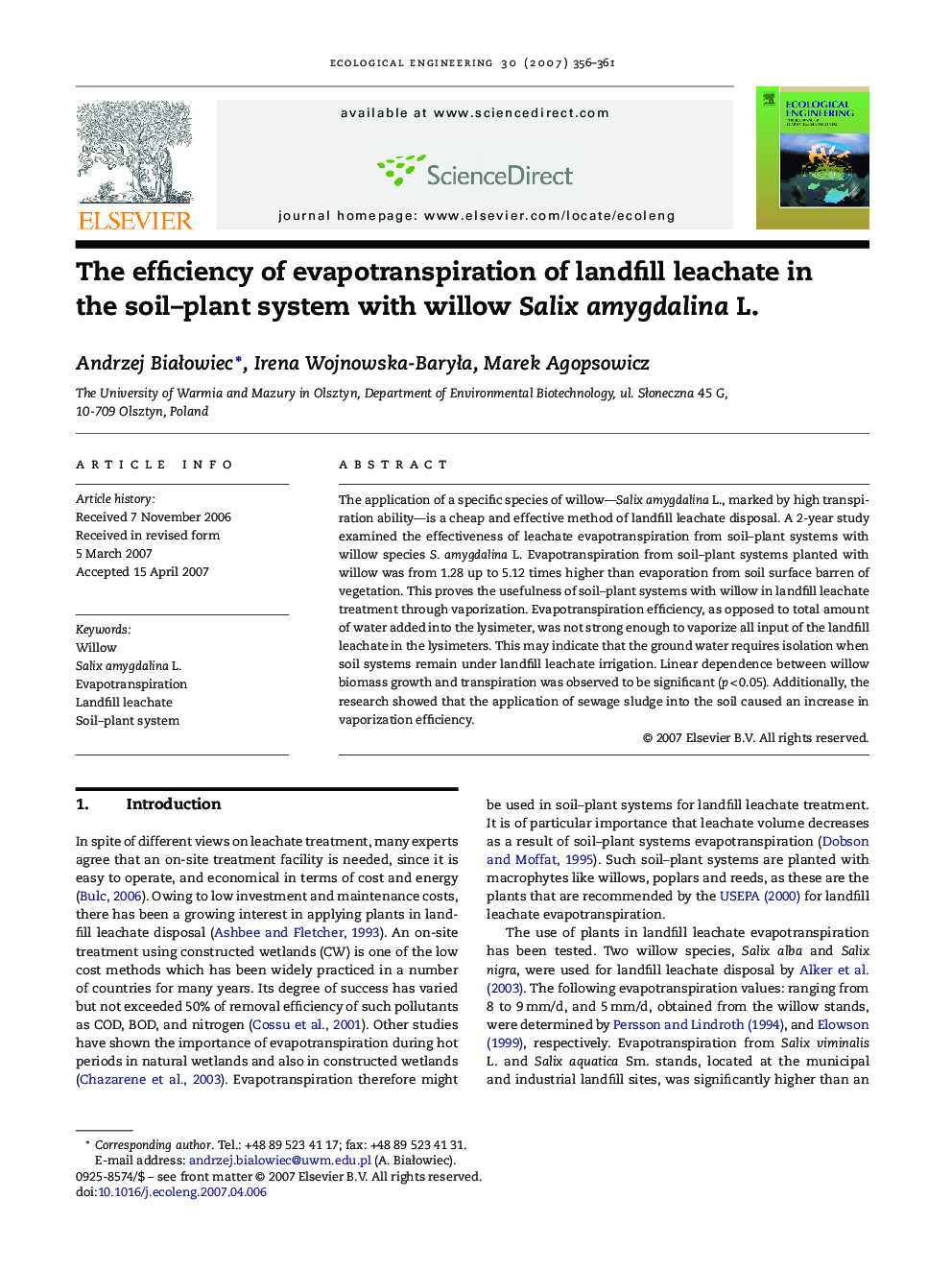| Article ID | Journal | Published Year | Pages | File Type |
|---|---|---|---|---|
| 4391080 | Ecological Engineering | 2007 | 6 Pages |
The application of a specific species of willow—Salix amygdalina L., marked by high transpiration ability—is a cheap and effective method of landfill leachate disposal. A 2-year study examined the effectiveness of leachate evapotranspiration from soil–plant systems with willow species S. amygdalina L. Evapotranspiration from soil–plant systems planted with willow was from 1.28 up to 5.12 times higher than evaporation from soil surface barren of vegetation. This proves the usefulness of soil–plant systems with willow in landfill leachate treatment through vaporization. Evapotranspiration efficiency, as opposed to total amount of water added into the lysimeter, was not strong enough to vaporize all input of the landfill leachate in the lysimeters. This may indicate that the ground water requires isolation when soil systems remain under landfill leachate irrigation. Linear dependence between willow biomass growth and transpiration was observed to be significant (p < 0.05). Additionally, the research showed that the application of sewage sludge into the soil caused an increase in vaporization efficiency.
